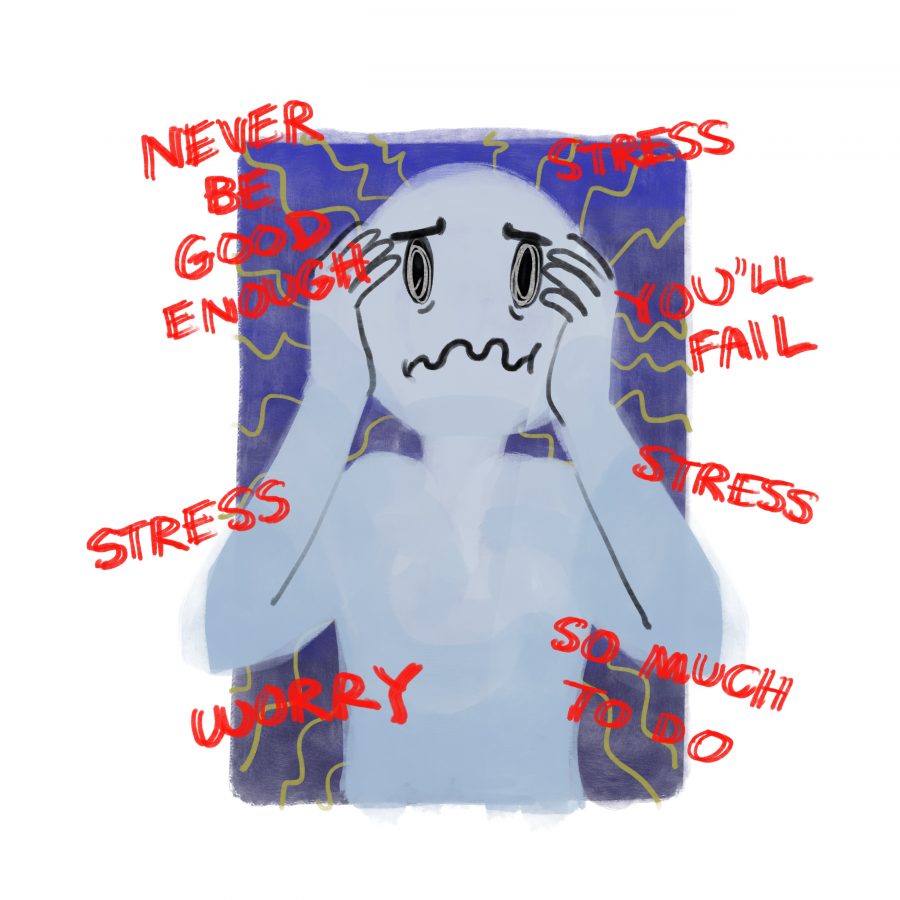While many students consider this time of year the easiest part of the semester, those who struggle with anxiety are already consumed by all of the semester’s challenges — even those that haven’t yet presented themselves.
Dr. Joey Hannah, diversity coordinator at UT’s Counseling and Mental Health Center, said many students facing anxiety can feel like they are literally dying in a ditch. “In their mind it’s, ‘I didn’t go to class today, so I didn’t get this assignment, which means I’m not gonna pass the test, which means I won’t pass this class, which means I’m not gonna pass this semester,’” Hannah said.
According to founder of Mental Health & Wellness – Austin, Dr. Asad Kirmani, anxiety is a mental disorder that one in five Americans will experience at some point in their lives. Kirmani said anxiety is a normal process in the brain that keeps us safe and motivates us, but when it affects a student’s functionality socially, academically or personally, it may be time to look into treatment options, especially because anxiety can often be accompanied by other mood disorders, such as depression.
“There’s a lot of symptom overlap and the two often co-occur,” Kirmani said, explaining that both disorders occur in the limbic system of the brain, which regulates things like anxiety, energy, appetite, sleep, concentration and pleasure. Because of this overlap, the two disorders often feed off of each other.
Dr. Diana Damer, director of the Anxiety Treatment Center of Austin, stressed that students with anxiety tend to use a “filter” that focuses on what is going wrong or the possible negative outcomes that could manifest instead of what could, or is, going right.
“From an evolutionary standpoint, it makes sense to notice what is wrong instead of what’s right,” Damer said. “Everyone has a tendency to focus on negative comments and experiences but with anxiety and depression, you see more of that cognitive distortion.”
For many students, it can be difficult to find the line between the healthy stress that most people will experience and an anxiety disorder — and there definitely is a line. According to Hannah, stress, or low-level anxiety, is normal and certainly not uncommon at UT.
“Stress can feel overwhelming but can be time-limited and manageable,” Hannah said. “Anxiety takes on different proportions. It takes on a life of its own.”
The difference between the two are the physical components that accompany anxiety. Hannah said anxiety is a very physical disorder that reveals itself through shortness of breath, increased heart rate and tightness in the chest.
Damer stressed that, particularly among college students, “Anything that affects your physical health is going to increase your risk of anxiety.”
According to all three doctors, treatment for disorders such as anxiety can be as simple as getting adequate sleep, hygiene, nutrition and exercise.
Kirmani suggested yoga and meditation as a way to reduce anxiety, adding that they “have been around for thousands of years for a reason: they’ve helped a lot of people.”
However, with more severe cases, students may find that their anxiety is to a point where they can no longer function at an appropriate level and, at that point, it may be time to consider more treatment options. UT students can take advantage of the many free mental health resources on campus: from counseling, to support groups, to the MindBody Labs located in the CMHC and Student Activity Center.
Damer said she believes that students with anxiety can live normal lives with the proper treatment from professionals.
“What we often try to help people do is live their life according to their values despite their anxiety,” Damer said.





















